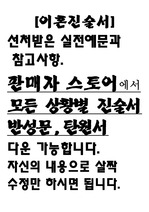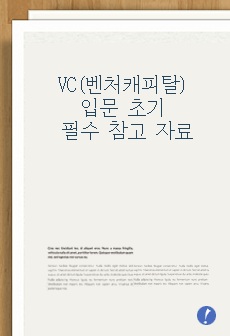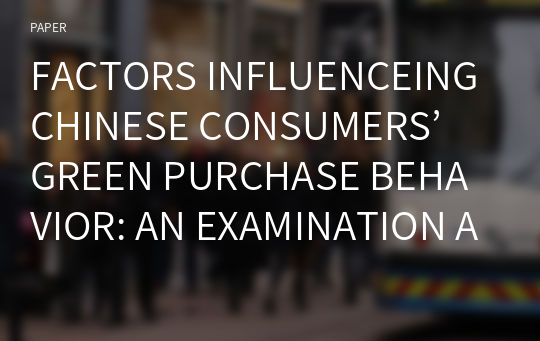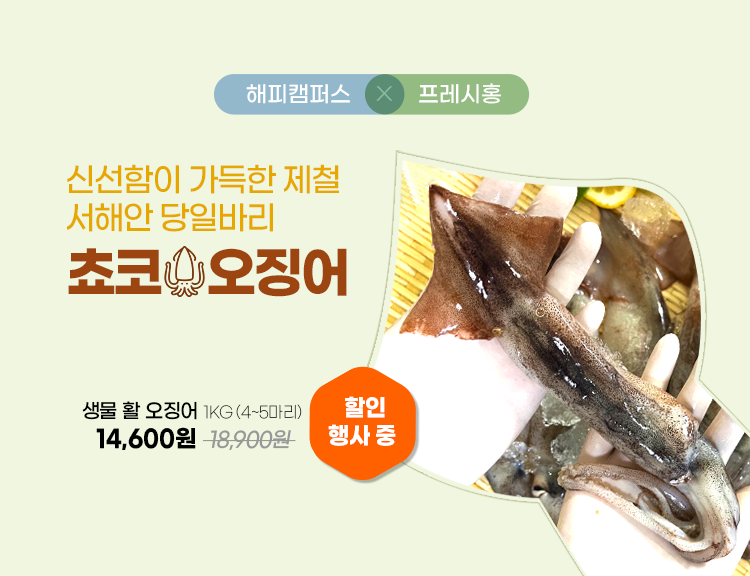FACTORS INFLUENCEING CHINESE CONSUMERS’ GREEN PURCHASE BEHAVIOR: AN EXAMINATION AND EXTENSION OF THEORY OF PLANNED BEHAVIOR (TPB)
* 본 문서는 배포용으로 복사 및 편집이 불가합니다.
서지정보
ㆍ발행기관 : 글로벌지식마케팅경영학회(GFMC)
ㆍ수록지정보 : Global Marketing Conference
ㆍ저자명 : Matthew Tingchi Liu, Di Liu, Sunny
ㆍ저자명 : Matthew Tingchi Liu, Di Liu, Sunny
영어 초록
IntroductionWith awareness of the importance of environmental protection, encouragement of green consumption has been an important part of the Chinese government's efforts to promote sustainable development. Green consumption is similar to the concept of environmental responsible consumption, which refers to individual’s behavior with a consideration of the environmental impacts in the process of purchasing, using and disposing of various products, or use of various green services (Stern, 1999). Previous studies tried to predict pro-environmental behavior with social-psychological factors, such as values, attitudes and beliefs. However, researches about the relationship between environmental attitudes and behaviors do not produce consistent results. Some prove that they are positive related, and others argue that their relationship is very weak. Studies have testified that lots of consumers declare that they concern about the environmental situation, but hesitate to pay for green products due to this affect (Chang, 2011). Advancing knowledge about the motivations and obstacles that shape intention and behavior of green consumption is important. The theory of planned behavior (TPB) (Ajzen, 1991) is appropriate as an initial framework for studies investigating consumers’ pro-environmental behaviors. With the inclusion of a new construct perceived behavioral control, the explanatory ability of this model is strengthened. However, simple adoption of this model does not give us deep insight into consumers’ behavior. Later studies apply TPB in different contexts (e.g. Paul, Modi, Patel, 2016; Mancha & Yoder, 2015; Han, Hsu, Sheu, 2011). The mechanism of how attitude, norms and perception of behavioral control are formed may differ in different circumstances, which is still under research especially in China. The purpose of this paper is to (a) identify applicability of TPB model in predicting green purchasing intention and behavior in China and capture which factor including attitude, perceived behavioral control and norm is the most influential determinant; (b) to examine the most useful psychological and situational antecedents, which indirect influence consumers’ green purchase behavior through the factors in TPB framework.
Literature Review and Hypothesis Development
Green products refer to those produced with consideration of less harm to the ecological environment such as air, water and land. Green purchase behavior should be considered as a typical socially conscious behavior that is different from other types of consumer behaviors, which can deliver instant personal gain and gratification (Kim & Choi, 2005). Most of the time, pro-environmental purchasing is future-oriented and benefits society as a whole (Author, Mccarty, & Shrum, 2001). Previous research models seek to explain green purchase behavior from two aspects of causal factors. Some emphasize intra-personal determinants from within and others may stress that from outside. However, a single consideration of any one set of these factors will weaken the interpretation of consumers’ green consumer behavior. The research model of this study is based on the most influential TPB framework. Some significant psychological and situational factors are integrated into the framework with the purpose of further understanding Chinese consumers’ purchase behavior.
Theory of planned behavior
According to the TPB model, individual’s decision making is oriented by a rational evaluation of behavioral consequences (Bamberg & Moer, 2007). The intention to perform a behavior, is considered as the central factor in the TPB model (Tarkiainen & Sundqvist, 2005). Attitude toward the behavior, subjective norm about the behavior, and perceived behavioral control regarding the performance of the behavior are three principal factors that determine behavioral intention. H1: Intention to buy green product has a positive relationship with the green purchase behavior. Attitude refers to individuals' beliefs about the outcomes of the behavior together with an evaluation of the importance of these outcomes. Consumers who feel positive toward green products and have agreement on their environmental goodness will most likely to consider buying products with pro-ecological features. H2a: Attitude toward buying green product is positively associated with the intention to perform green purchase behavior. Subjective norm refers to the responses of important reference group (e.g. family members, close friends) to a particular behavior. Some scholars argue that “subjective norm” is the weakest component in the TPB model when predicting behavioral intentions due to its feature of both self and social interest (Armitage & Conner, 2001; Bagozzi et al., 2000). In this study, “moral norm” instead of “subjective norm” is proposed as a direct predictor of intention toward green purchasing. Moral norm indicates individual’s perception that whether performing a certain behavior is morally correct or not (Ajzen, 1991). H2b: Moral norm regarding buying green product is positively associated with the intention to perform green purchase behavior. Perceived behavioral control is an individual’s perception about if performing a particular behavior is easy or difficult. People tend to be more involved in behaviors that are considered to be easier to realize than what they think is difficult and have less control (Bamberg & Moer, 2007). H2c: PBC of buying green product is positively associated with the intention to perform green purchase behavior.
Psychological antecedents of attitude
Environmental concern indicates consumers' awareness about environmental issues and people’s worry that the human intervention will have threat to the environment (Kim & Choi, 2005). Literatures reveal an indirect relationship between ecological affect and actual behavior. Bang et al. (2000) concludes that environmental concern has indirect effect on purchase intention through the influence of consumer’s attitude toward paying a premium for renewable energy. The emotional responses to ecological problems help consumers to create a positive attitude toward green purchase behavior. H3a: Environmental concern is positively associated with the attitude toward green purchase behavior. Environmental knowledge represents consumers’ understanding of the environmental conditions, as well as fundamental factors that contribute to environmental change and crucial ecological effects (Pagiaslis & Krontalis, 2014). Knowledge has impact for individual’s cognitive processing. Zhao et al. (2014) confirms knowledge as one of the factors that form people’s attitudes toward environment-friendly behavior. Compared with less knowledgeable consumers, those who have more environmental knowledge incline to be more concerned about the environment, which in turn leads consumers to take attention to products’ ecological features while purchasing (Kim, Park, & Schwarz, 2010). H3b: Perceived environmental knowledge is positively associated with attitude toward green purchase behavior. In the pro-environmental behavior domain, PCE indicates to what extent consumers feel that every single person can contribute to solve environmental problems through their own efforts and their everyday purchase behavior (Straughan & Roberts, 1999).With the absence of belief that individual’s actions have observable outcome in making different solution to a problem, people will hesitate to take into action. Kim and Choi (2005) conclude that PCE has indirect effect on green purchasing through the role of ecological sensitive attitudes. H3c: PCE is positively associated with attitude toward green purchase behavior.
Moral norm and subjective norm
Bamberg and Moer (2007) suggest that people make use of subjective norms to determine whether a specific behavioral choice is easy to perform or whether it is beneficial. The opinions from “important others” deliver the standards for people to conform when they encounter the same situation. That is, the views about what is right or wrong from reference group will be absorbed and transformed as one’s personal moral norms (Bamberg & Moer, 2007). H4: Subjective norm is positively associated with moral norm regarding green purchase behavior.
Situational factors influencing PBC
Perceived availability indicates if consumers feel they can easily obtain or consume a certain product. If green products are not easy available, most consumers will not spend too much time and effort for searching. The limited availability and inconvenience in obtaining products is bound to hamper green products purchasing (Vermeir & Verbeke, 2006). H5a: Perceived availability of green product is positively associated with PBC regarding green purchase behavior. Perceived price is one of the most important factors that have impact on consumers’ decision-making of green consumption (Osterhus, 1997). Green products are generally priced higher than conventional products. However Chinese consumers who would like to pay a large premium are still in the minority. The perceived high price is a barrier that influences consumers’ perceived capability over green purchase behavior. H5b: Perceived price of green product is negatively associated with PBC regarding green purchase behavior. Information has an impact on individual’s cognitive process. It is an influential factor that leads consumer behavior change (Bator & Cialdini, 2000). Atkinson and Rosenthal confirm that eco-labels have effects on consumer’s trust and purchase intention. If consumers feel hard to recognize eco-labels and cannot understand their difference with regular ones, their perception of control will be highly influenced and the green purchase may be hindered. H5c: Perception of information provided by eco-label is positively associated with PBC regarding green purchase behavior.
Methodology
This research adopted the survey approach for data collection. A questionnaire that consisted of 46 items was designed according to relevant previous studies. All the items in the questionnaire use five-point Likert scale, which ranging from “strongly disagree” (1) to “strongly agree” (5). The target group of this study was consumer who is over 18 years old in the urban areas of Mainland China. An online survey was conducted for collecting data in the mid-October, 2017 and 500 samples were collected totally. After removing the disqualified questionnaires, 485 questionnaires were identified as eligible for further analysis. To testify the proposed hypotheses, the simple and multiple linear regression analyses using IBM SPSS Statistics was primarily adopted in the study. Meanwhile, the structural equation modeling (SEM) was also conducted as an alternative approach to examine the arguments.
Results
Firstly, the theory of planned behavior suggested by Ajzen (1991) was proved to be applicable in the green purchasing circumstance. Attitude was identified to play the most significant role in predicting the intention. The construct “moral norm” was resulted to be more predictable for green purchase intention compared with the original “subjective norm”. It indicates that in certain contexts, personal feeling of moral obligation or responsibility is more crucial and direct reason for consumer conducting ethical behaviors. Perceived behavioral control was testified as the third prediction of purchase intention. The proportion of variance explained (R2=0.546) for intention was even better compared with previous studies, which claimed that the three determinants account for between 40% and 50% of the variance in intention (Ajzen, 1991; Amireault et al., 2008; Conner & Armitage, 1998). This model revealed consumers’ mental development of their purchase intention before enacting the buying behavior. Secondly, the results testify that PCE plays as the central role in predicting attitude. Respondents who believe that their consumptions can help to reduce environmental deterioration will be much likely to hold positive attitudes toward green purchasing. Environmental concern and perceived knowledge have a considerable, but only indirect impact on consumers’ attitude.
Implications for practice
The results of this study suggest that consumers’ intentions to buy green products are directly predicted by attitude, moral norm and their perceived behavioral control. Firstly, enterprises in the green market need to adopt effective communication strategy to inform consumers about the advantages of environmentally friendly products in order to help consumers to develop a positive attitude to pro-environmental products. Moreover, due to the significant effect of PCE on consumer attitude, it's necessary for the government to quantify the effect of green consumption by real cases and data, so that people can perceive the effectiveness of green buying behavior in a more intuitive way. Meanwhile, companies should take more emphasis on consumer’s ability to solve the problem in a positive manner in marketing communications. Secondly, personal moral norm is also found to have direct effects on purchase green products. Thus, normative appeal is needed for creating consumers' emotional connection and should be presented in the promotion programs to stimulate green consumption. Thirdly, this study reveals that the availability is the main factor that affects consumers’ perceived behavioral control over green purchasing.
참고 자료
없음"Global Marketing Conference"의 다른 논문
 THE ROLES OF GREEN PACKAGING IN UGLY FOOD PURCHASE INTE..22페이지
THE ROLES OF GREEN PACKAGING IN UGLY FOOD PURCHASE INTE..22페이지 THE IMPACT OF INDUCED AWE ON ETHICAL TOURIST BEHAVIORS5페이지
THE IMPACT OF INDUCED AWE ON ETHICAL TOURIST BEHAVIORS5페이지 A BIBLIOMETRIC ANALYSIS OF SPIRITUAL TOURISM RESEARCH15페이지
A BIBLIOMETRIC ANALYSIS OF SPIRITUAL TOURISM RESEARCH15페이지 SOCIAL NETWORK ANALYSIS AND RESPONSE TIME TESTING: CONS..11페이지
SOCIAL NETWORK ANALYSIS AND RESPONSE TIME TESTING: CONS..11페이지 THE EFFECTS OF PARA-SOCIAL INTERACTION ON ONLINE CELEBR..3페이지
THE EFFECTS OF PARA-SOCIAL INTERACTION ON ONLINE CELEBR..3페이지 THE INFLUENCE OF OPINION LEADERS ON DAILY DEALS USER’S ..3페이지
THE INFLUENCE OF OPINION LEADERS ON DAILY DEALS USER’S ..3페이지 HOW IMMERSIVE RETAILING AFFECTS CONSUMERS’ URGE TO BUY:..6페이지
HOW IMMERSIVE RETAILING AFFECTS CONSUMERS’ URGE TO BUY:..6페이지 KEY TO SUPERSTARDOM IN A GLOBALISED MARKET: THE ROLE OF..6페이지
KEY TO SUPERSTARDOM IN A GLOBALISED MARKET: THE ROLE OF..6페이지 A POST-PANDEMIC LOOK AT TOURISTS’ PERCEIVED COOLNESS OF..4페이지
A POST-PANDEMIC LOOK AT TOURISTS’ PERCEIVED COOLNESS OF..4페이지 EXTRACTING OFFLINE RETAIL SHOPPING PATTERNS: OLLABORATI..5페이지
EXTRACTING OFFLINE RETAIL SHOPPING PATTERNS: OLLABORATI..5페이지




























